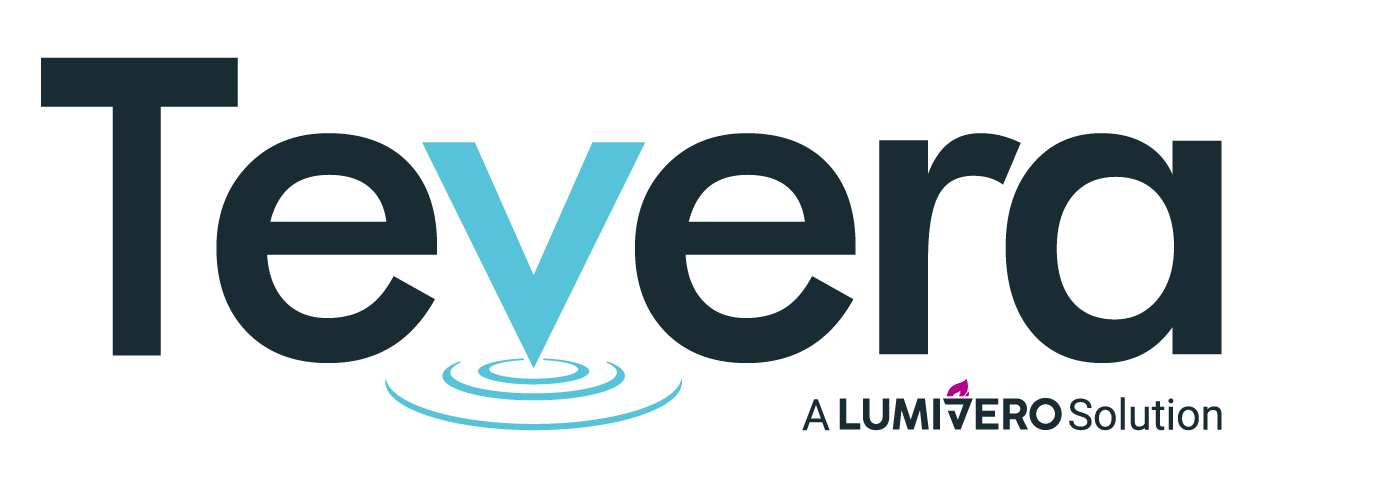Navigating Accreditation Management
A Dive into Documentation, Evidence Gathering and Continuous Quality Improvement (CQI)
Accreditation management is a multi-faceted process that requires meticulous planning, systematic implementation, and ongoing oversight. Among the myriad of challenges faced by educational institutions during the accreditation process, two stand out as particularly daunting: Documentation & Evidence Gathering and Continuous Quality Improvement (CQI).
In this blog post, we’ll delve into these two critical areas, uncovering the challenges associated with them, offering viable solutions, and outlining how Tevera simplifies both.
Documentation & Evidence Gathering
Documentation and evidence gathering form the backbone of any accreditation process. This ensures that academic standards, policies, and processes within an institution are consistently upheld.
By compiling a comprehensive record of the institution’s practices, achievements, and areas of improvement, documentation serves as a testament to the institution’s commitment to maintaining the highest educational standards. Furthermore, it offers accrediting bodies a tangible insight into the institution’s operations, allowing them to assess its eligibility for accreditation.
Without proper documentation, it’s almost impossible to showcase an institution’s competencies and adherence to stipulated standards. Thus, comprehensive and accurate documentation stands as a non-negotiable pillar in the pursuit of accreditation.
Challenges
Challenges to accreditation management, especially documentation management and continuous quality improvement, are numerous, but these three might be the toughest:
Volume & Complexity
Accreditation requires a vast amount of documentation, which can be overwhelming given the complexity of topics covered.
Cross-Departmental Coordination
Gathering evidence often involves liaising with various departments, making the task even more challenging.
Timeliness & Accuracy
Accreditation bodies demand not just volume but timely and accurate documentation, which institutions often find challenging to produce.
Solutions
To address these challenges, a few solutions are often recommended by institutions that have successfully navigated their own accreditation processes:
Dedicate a CQI Team
A team solely focused on CQI can plan, execute, and measure quality improvement initiatives without being encumbered by day-to-day operations.
Institution-Wide Feedback Platforms
Utilizing technology to solicit feedback from students, faculty, and other stakeholders can streamline the feedback process, ensuring that all voices are heard and considered.
Outcome Metrics & Dashboards
Developing specific metrics to measure the outcomes of CQI initiatives can be complemented with visual dashboards. This not only helps in internal monitoring but also provides tangible proof of improvement to accrediting bodies.
How Tevera Simplifies Documentation & Evidence Gathering and Continuous Quality Improvement
Tevera’s all-in-one education management platform simplifies documentation management and continual program improvement through a variety of interrelated features including:
Flexible Assessment Structure
Tevera’s flexible assessment structure allows you to track student performance on key program-wide assessment standards, including those mandated by an accrediting body or your program’s own specific KPIs.
Align assessment standards to rubric criteria and distribute assessment points across courses so that all faculty can assess student performance on relevant, demonstrable criteria, using a consistent rating scale
Importance of this Feature
Tevera allows you to design a consistent, repeatable strategy for measuring student performance and competency development across your program for reliable insights into program and student growth. With Tevera, you can easily align assessment standards to rubric criteria and distribute assessment points across courses so that all faculty can assess student performance on relevant, demonstrable criteria, using a consistent rating scale.
Assessment Mapping
With Tevera, you can take a program wide view of your entire assessment strategy by viewing and exporting your assessment strategy, mapped out across all courses in your program.
Generate an assessment map report to review the assessment strategy that has been built into your program’s courses in Tevera.
Importance of this Feature
Reaffirm your assessment strategy and ensure all standards are evaluated appropriately throughout your program by viewing, exporting, and sharing your comprehensive assessment map.
Assessment Outcomes Reports
Generate reports displaying student outcomes by individuals, classes, cohorts, specializations, and select demographic characteristics to analyze student performance on one specific assessment point or across a set of standards evaluated throughout the program.
Importance of this Feature
Gain insights to inform accreditation reports and continuous program improvement efforts by generating assessment outcome reports in a wide variety of formats.
Data Exports
Exporting key program data to a spreadsheet for deeper analysis is as simple as the click of a button. Click the export icon alongside any table in Tevera to automatically generate an Excel spreadsheet of the displayed data.
Importance of this Feature
Take Tevera’s insights with you anywhere, by easily exporting any data, such as documentation, user information, student timesheets, partnering site information, and more, at the click of a button.
Outcomes-Based Assessment
Enable program faculty to evaluate student learning outcomes across the breadth of their coursework. Add key assignments and assessment rubrics to all core courses so that students can upload work samples and faculty can evaluate student outcomes aligned with student learning outcome targets.
Importance of this Feature
Foster a culture of reflection and improvement by incorporating outcomes-based-assessment into all core coursework throughout your program.
Data Storage and Organization
Organize your program’s data and documentation effortlessly and leave arduous record-keeping in your program’s past. Tevera’s intuitive data storage structure will ensure that your data and documents are automatically organized according to logical schema, making it easy for you to find, update, and export data any time you need it.
Importance of this Feature
Organize, update, store, and export data and documentation in an intuitive system, for thorough record-keeping and program management over time.
Learn How Tevera Can Transform Your Program
Tackling the challenges associated with accreditation management requires a mix of strategic planning, technology, and collaborative effort. Programs that invest in these areas are not only better prepared for the accreditation process but are also better equipped to offer superior educational experiences to their students.
Learn how Tevera can support you by scheduling a product overview for your team to review Tevera’s features and discuss your program’s requirements.
SOLUTIONS
RELATED POSTS
PRODUCT OVERVIEW
See how Tevera can elevate your program.
Navigating Accreditation Management
A Dive into Documentation, Evidence Gathering and Continuous Quality Improvement (CQI)
Accreditation management is a multi-faceted process that requires meticulous planning, systematic implementation, and ongoing oversight. Among the myriad of challenges faced by educational institutions during the accreditation process, two stand out as particularly daunting: Documentation & Evidence Gathering and Continuous Quality Improvement (CQI).
In this blog post, we’ll delve into these two critical areas, uncovering the challenges associated with them, offering viable solutions, and outlining how Tevera simplifies both.
Documentation & Evidence Gathering
Documentation and evidence gathering form the backbone of any accreditation process. This ensures that academic standards, policies, and processes within an institution are consistently upheld.
By compiling a comprehensive record of the institution’s practices, achievements, and areas of improvement, documentation serves as a testament to the institution’s commitment to maintaining the highest educational standards. Furthermore, it offers accrediting bodies a tangible insight into the institution’s operations, allowing them to assess its eligibility for accreditation.
Without proper documentation, it’s almost impossible to showcase an institution’s competencies and adherence to stipulated standards. Thus, comprehensive and accurate documentation stands as a non-negotiable pillar in the pursuit of accreditation.
Challenges
Challenges to accreditation management, especially documentation management and continuous quality improvement, are numerous, but these three might be the toughest:
Volume & Complexity
Accreditation requires a vast amount of documentation, which can be overwhelming given the complexity of topics covered.
Cross-Departmental Coordination
Gathering evidence often involves liaising with various departments, making the task even more challenging.
Timeliness & Accuracy
Accreditation bodies demand not just volume but timely and accurate documentation, which institutions often find challenging to produce.
Solutions
To address these challenges, a few solutions are often recommended by institutions that have successfully navigated their own accreditation processes:
Dedicate a CQI Team
A team solely focused on CQI can plan, execute, and measure quality improvement initiatives without being encumbered by day-to-day operations.
Institution-Wide Feedback Platforms
Utilizing technology to solicit feedback from students, faculty, and other stakeholders can streamline the feedback process, ensuring that all voices are heard and considered.
Outcome Metrics & Dashboards
Developing specific metrics to measure the outcomes of CQI initiatives can be complemented with visual dashboards. This not only helps in internal monitoring but also provides tangible proof of improvement to accrediting bodies.
How Tevera Simplifies Documentation & Evidence Gathering and Continuous Quality Improvement
Tevera’s all-in-one education management platform simplifies documentation management and continual program improvement through a variety of interrelated features including:
Flexible Assessment Structure
Tevera’s flexible assessment structure allows you to track student performance on key program-wide assessment standards, including those mandated by an accrediting body or your program’s own specific KPIs.
Align assessment standards to rubric criteria and distribute assessment points across courses so that all faculty can assess student performance on relevant, demonstrable criteria, using a consistent rating scale
Importance of this Feature
Tevera allows you to design a consistent, repeatable strategy for measuring student performance and competency development across your program for reliable insights into program and student growth. With Tevera, you can easily align assessment standards to rubric criteria and distribute assessment points across courses so that all faculty can assess student performance on relevant, demonstrable criteria, using a consistent rating scale.
Assessment Mapping
With Tevera, you can take a program wide view of your entire assessment strategy by viewing and exporting your assessment strategy, mapped out across all courses in your program.
Generate an assessment map report to review the assessment strategy that has been built into your program’s courses in Tevera.
Importance of this Feature
Reaffirm your assessment strategy and ensure all standards are evaluated appropriately throughout your program by viewing, exporting, and sharing your comprehensive assessment map.
Assessment Outcomes Reports
Generate reports displaying student outcomes by individuals, classes, cohorts, specializations, and select demographic characteristics to analyze student performance on one specific assessment point or across a set of standards evaluated throughout the program.
Importance of this Feature
Gain insights to inform accreditation reports and continuous program improvement efforts by generating assessment outcome reports in a wide variety of formats.
Data Exports
Exporting key program data to a spreadsheet for deeper analysis is as simple as the click of a button. Click the export icon alongside any table in Tevera to automatically generate an Excel spreadsheet of the displayed data.
Importance of this Feature
Take Tevera’s insights with you anywhere, by easily exporting any data, such as documentation, user information, student timesheets, partnering site information, and more, at the click of a button.
Outcomes-Based Assessment
Enable program faculty to evaluate student learning outcomes across the breadth of their coursework. Add key assignments and assessment rubrics to all core courses so that students can upload work samples and faculty can evaluate student outcomes aligned with student learning outcome targets.
Importance of this Feature
Foster a culture of reflection and improvement by incorporating outcomes-based-assessment into all core coursework throughout your program.
Data Storage and Organization
Organize your program’s data and documentation effortlessly and leave arduous record-keeping in your program’s past. Tevera’s intuitive data storage structure will ensure that your data and documents are automatically organized according to logical schema, making it easy for you to find, update, and export data any time you need it.
Importance of this Feature
Organize, update, store, and export data and documentation in an intuitive system, for thorough record-keeping and program management over time.
Learn How Tevera Can Transform Your Program
Tackling the challenges associated with accreditation management requires a mix of strategic planning, technology, and collaborative effort. Programs that invest in these areas are not only better prepared for the accreditation process but are also better equipped to offer superior educational experiences to their students.
Learn how Tevera can support you by scheduling a product overview for your team to review Tevera’s features and discuss your program’s requirements.
Navigating Accreditation Management
A Dive into Documentation, Evidence Gathering and Continuous Quality Improvement (CQI)
Accreditation management is a multi-faceted process that requires meticulous planning, systematic implementation, and ongoing oversight. Among the myriad of challenges faced by educational institutions during the accreditation process, two stand out as particularly daunting: Documentation & Evidence Gathering and Continuous Quality Improvement (CQI).
In this blog post, we’ll delve into these two critical areas, uncovering the challenges associated with them, offering viable solutions, and outlining how Tevera simplifies both.
Documentation & Evidence Gathering
Documentation and evidence gathering form the backbone of any accreditation process. This ensures that academic standards, policies, and processes within an institution are consistently upheld.
By compiling a comprehensive record of the institution’s practices, achievements, and areas of improvement, documentation serves as a testament to the institution’s commitment to maintaining the highest educational standards. Furthermore, it offers accrediting bodies a tangible insight into the institution’s operations, allowing them to assess its eligibility for accreditation.
Without proper documentation, it’s almost impossible to showcase an institution’s competencies and adherence to stipulated standards. Thus, comprehensive and accurate documentation stands as a non-negotiable pillar in the pursuit of accreditation.
Challenges
Challenges to accreditation management, especially documentation management and continuous quality improvement, are numerous, but these three might be the toughest:
Volume & Complexity
Accreditation requires a vast amount of documentation, which can be overwhelming given the complexity of topics covered.
Cross-Departmental Coordination
Gathering evidence often involves liaising with various departments, making the task even more challenging.
Timeliness & Accuracy
Accreditation bodies demand not just volume but timely and accurate documentation, which institutions often find challenging to produce.
Solutions
To address these challenges, a few solutions are often recommended by institutions that have successfully navigated their own accreditation processes:
Dedicate a CQI Team
A team solely focused on CQI can plan, execute, and measure quality improvement initiatives without being encumbered by day-to-day operations.
Institution-Wide Feedback Platforms
Utilizing technology to solicit feedback from students, faculty, and other stakeholders can streamline the feedback process, ensuring that all voices are heard and considered.
Outcome Metrics & Dashboards
Developing specific metrics to measure the outcomes of CQI initiatives can be complemented with visual dashboards. This not only helps in internal monitoring but also provides tangible proof of improvement to accrediting bodies.
How Tevera Simplifies Documentation & Evidence Gathering and Continuous Quality Improvement
Tevera’s all-in-one education management platform simplifies documentation management and continual program improvement through a variety of interrelated features including:
Flexible Assessment Structure
Tevera’s flexible assessment structure allows you to track student performance on key program-wide assessment standards, including those mandated by an accrediting body or your program’s own specific KPIs.
Align assessment standards to rubric criteria and distribute assessment points across courses so that all faculty can assess student performance on relevant, demonstrable criteria, using a consistent rating scale
Importance of this Feature
Tevera allows you to design a consistent, repeatable strategy for measuring student performance and competency development across your program for reliable insights into program and student growth. With Tevera, you can easily align assessment standards to rubric criteria and distribute assessment points across courses so that all faculty can assess student performance on relevant, demonstrable criteria, using a consistent rating scale.
Assessment Mapping
With Tevera, you can take a program wide view of your entire assessment strategy by viewing and exporting your assessment strategy, mapped out across all courses in your program.
Generate an assessment map report to review the assessment strategy that has been built into your program’s courses in Tevera.
Importance of this Feature
Reaffirm your assessment strategy and ensure all standards are evaluated appropriately throughout your program by viewing, exporting, and sharing your comprehensive assessment map.
Assessment Outcomes Reports
Generate reports displaying student outcomes by individuals, classes, cohorts, specializations, and select demographic characteristics to analyze student performance on one specific assessment point or across a set of standards evaluated throughout the program.
Importance of this Feature
Gain insights to inform accreditation reports and continuous program improvement efforts by generating assessment outcome reports in a wide variety of formats.
Data Exports
Exporting key program data to a spreadsheet for deeper analysis is as simple as the click of a button. Click the export icon alongside any table in Tevera to automatically generate an Excel spreadsheet of the displayed data.
Importance of this Feature
Take Tevera’s insights with you anywhere, by easily exporting any data, such as documentation, user information, student timesheets, partnering site information, and more, at the click of a button.
Outcomes-Based Assessment
Enable program faculty to evaluate student learning outcomes across the breadth of their coursework. Add key assignments and assessment rubrics to all core courses so that students can upload work samples and faculty can evaluate student outcomes aligned with student learning outcome targets.
Importance of this Feature
Foster a culture of reflection and improvement by incorporating outcomes-based-assessment into all core coursework throughout your program.
Data Storage and Organization
Organize your program’s data and documentation effortlessly and leave arduous record-keeping in your program’s past. Tevera’s intuitive data storage structure will ensure that your data and documents are automatically organized according to logical schema, making it easy for you to find, update, and export data any time you need it.
Importance of this Feature
Organize, update, store, and export data and documentation in an intuitive system, for thorough record-keeping and program management over time.
Learn How Tevera Can Transform Your Program
Tackling the challenges associated with accreditation management requires a mix of strategic planning, technology, and collaborative effort. Programs that invest in these areas are not only better prepared for the accreditation process but are also better equipped to offer superior educational experiences to their students.
Learn how Tevera can support you by scheduling a product overview for your team to review Tevera’s features and discuss your program’s requirements.




















